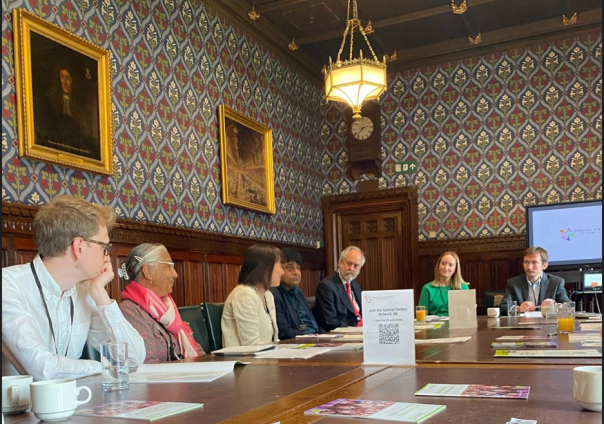
The meeting showcased the group’s forthcoming research into diet and identity and heard from a number of expert speakers on the challenges around having dietary needs respected in care settings.
Moussa Haddad, head of research and policy at VfL said: “The Special Dietary Network event in Parliament showed how, for all that our exact dietary, religious or cultural requirements might vary, we all fundamentally need and want the same things as we get older - to have our autonomy protected, and to be treated with respect.
“We look forward to continuing to work with the many faiths and organisations represented at the event, and hope that together we can change things for the better.”
Anna Boardman of VfL set out the findings of a systematic literature review that she has been conducting into diet and identity, emphasising the centrality of diet to our sense of self.
Nitin Mehta, an expert and speaker on India’s spiritual heritage and vegetarianism and veganism, focused on the complexities of Jain culinary requirements, and on a successful example of campaigning to improve the cultural sensitivity of hospital food.
Rabbi Dr Jonathan Romain talked about Jewish dietary requirements and connections with identity, with food acting as a ‘daily reminder’ of the latter.
Yasmin Surti, who works nationally for the NHS and locally for the Federation of Muslim Organisations in Leicestershire, spoke about some of the subtleties of the relationship between food and culture in different Islamic communities, and how these are often not respected in care settings.
A video presentation by Dr Karan Jutlla described the work she has done exploring the treatment of South Asian individuals in care settings, focusing in particular on Sikh dietary requirements that often go misunderstood.
Beth Britton's experience as carer to her father who had vascular dementia for 19 years has led her to become a long-term campaigner on improving dementia care and support. She talked about the importance of finding different ways to communicate with people living with dementia, such as through life stories, so that we can know the person and thus begin to meet their needs.